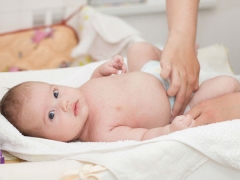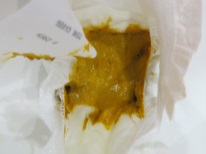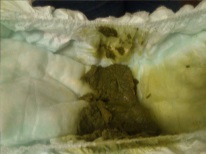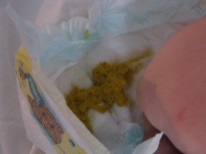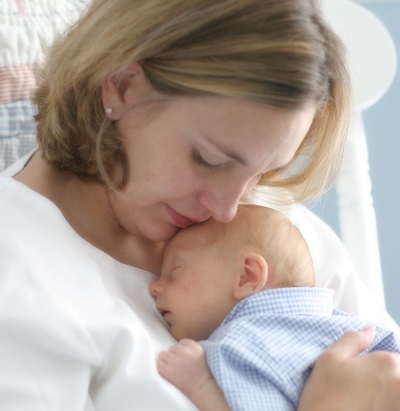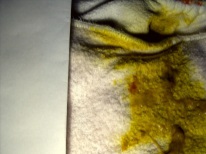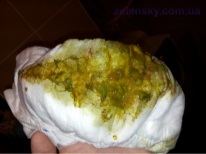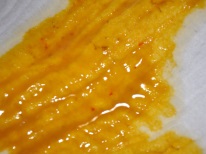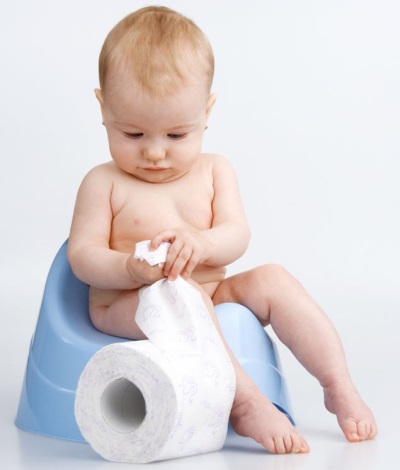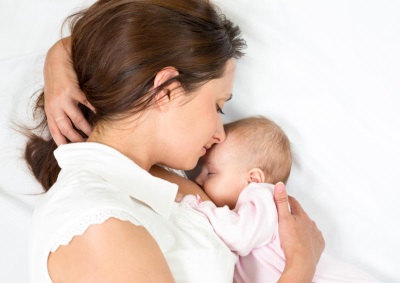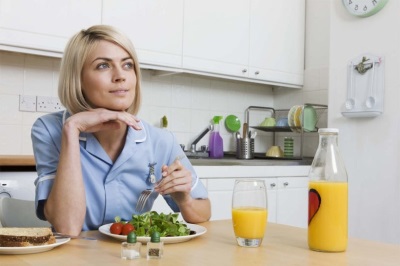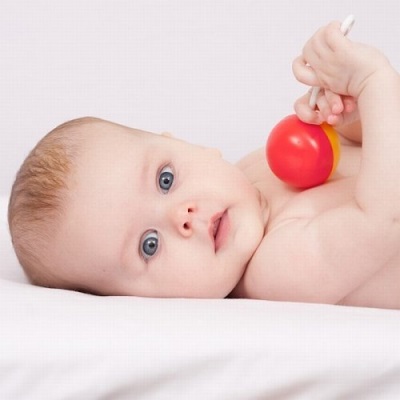What to do with diarrhea in infants?
The baby’s chair can be fluid, so parents of a small child should know what diarrhea is in babies, because it can be a serious symptom requiring immediate medical attention.
Signs of
The fact that the baby started to have diarrhea, parents can judge by a heavily diluted chair of a larger volume. A feces baby has an unpleasant odor, there may be impurities.
What does it look like?
The baby’s stool is fluid and watery. There may be blotches and impurities. The child poops more often than usual. The color of the chair can change - the color can become bright yellow, green and even black.
To make it easier for the called doctor to identify the problem, one of the diapers should be left until the doctor or the ambulance arrives.
What should be normal?
The liquid consistency of the stool for the baby is normal, because babies at an early age receive mostly liquid food (breast milk or a mixture). In children who receive only breast milk, feces have a consistency similar to liquid pulp. Mostly the baby’s stools are yellow; impurities can occur in the form of a small amount of white patches.
In the first months, the baby can get 5-6 times a day and more often. When the crumb begins to use the complementary foods, the baby’s chair becomes more decorated and thick. By the year the crumb often poops 1-2 times a day.
The reasons
To occurrence diarrhea in an infant can cause:
- Infections.
- Overheat.
- Intolerance of some products, for example, containing lactose or gluten.
- New dishes in the diet.
- Dirty toys and dishes.
- Teething.
- Some medicines.
- Dysbacteriosis.
- Violations diet mom.
- Acute surgical diseases (appendicitis, intestinal obstruction, peritonitis).
The infant's body may react with the dilution of feces to any unfamiliar product or an excess of the usual product, since the baby’s intestines are still developing, and the enzymes are not as active as those of older children.
Diarrhea can be caused not only by pathogenic bacteria that affect adults, but also by microorganisms that cause colds and other diseases, as well as germs that are harmless to adults.
In most children, the intestine responds by diluting the stool to taking antibiotics. To prevent frustration, doctors prescribe lactobacilli.
A baby’s stool can also be liquid and greenish if the mother changes the breast frequently, with the result that the baby receives only the front milk.
Opinion E. Komarovsky
According to the well-known doctor, diarrhea, like vomiting attacks, is a defensive reaction that helps get rid the body of harmful microbes or toxic substances. So, diarrhea should not be taken as something that should be stopped immediately. On the contrary, at first the child should be helped, for example, to make an enema with boiled cool water.
According to Komarovsky, the main action of the parents should be to replace the lost salts and liquid in the baby. It is best to deal with this goal drugs, which are salt solutions.They need to be diluted with boiled water and allowed to drink to the baby. Also, crumbs can give tea, decoction of dried fruit, decoction of herbs, mineral water and any other liquid. It is desirable that the temperature of the drink was about +37 degrees, then the liquid will be absorbed faster.
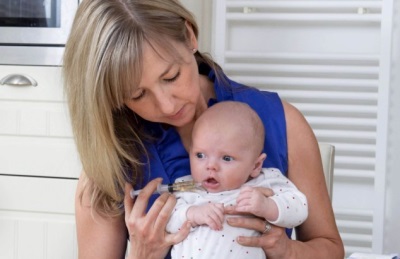
Parents should always remember that the most terrible thing in case of any diarrhea is the loss of salts and fluids by the child’s body. Since young children have small reserves, there is a real threat to their health. Komarovsky advises to see a doctor if diarrhea begins in a child younger than 1 year old, and there is no improvement in the condition within a day. If the condition has improved, give the child a lot of food should not be. Give the crumbs to receive complementary foods, rice porridge, curds, tea in a small amount.
Related symptoms
Diarrhea is rarely the only symptom, and the presence of other changes helps to establish the cause of the dilution of the stool.
Temperature
Raising the temperature with diarrhea should immediately alert the parents. If the baby poops more and more, and the temperature exceeds 38 degrees, immediately call a doctor.
Temperature and vomiting
Such signs probably indicate an intestinal infection (quite often babies affect rotavirus), but there may also be manifestations of acute surgical pathologies, for example, invagination of the intestine or appendicitis. Baby skin is dry, the child quickly weakens. All these symptoms are very disturbing and should be the reason for calling an ambulance.
With blood
Most often, blood impurities in the feces indicate damage to the large intestine.
Diarrhea without fever and vomiting
If the general condition of the baby is not changed, but the stool is fluid and plentiful and there are signs of a soon appearance of teeth, such diarrhea may be teething. Changes in stool without fever may also indicate problems with enzymes, such as lactase.
Abundant frothy diarrhea with an unpleasant odor may occur with intolerance gluten free. Also, increased stools without fever and vomiting attacks can occur with cystic fibrosis. The feces of a child with such a hereditary disease will be viscous, fetid and brilliant.
Nutrition, stress, acclimatization and similar causes of neuro-reflex irritation of the intestines and increased peristalsis, also lead to diarrhea, in which body temperature does not rise.
Urgent Care
Most often, diarrhea is a mild disorder that quickly resolves when treatment is started promptly.
The diarrhea becomes severe, if blood or mucus appears in the stool, the child begins to vomit, the body temperature rises above 38 degrees, there are signs of dehydration. Emergency care is necessary for the child immediately, even before the arrival of the doctor. Actions will vary depending on the severity of the condition of the crumbs.
With weak form
- If the baby is breastfed, he should continue to apply the breast, but reduce the amount of feedings.
- If the child is already given complementary foods, then solid food from his diet should be temporarily excluded.
- The artificial baby should be half diluted with water. If the child is hungry, give him a diluted meal more often.
- Do not increase the amount of food until the baby’s stool begins to normalize.
- If in 2-3 days mild diarrhea has not stopped, it should be considered a severe form and immediately call a doctor.
- Convalescent baby can return solid food to the diet, while giving 1 type of product per day.First, you should give dishes with gelatin, then apple and juice from orange, then eggs and meat, then porridge, followed by vegetables, starch products and fruits.
- On the first day, give only a third of the usual portion of solid food, on the second - 60%, and only on the third - the entire portion.
- New products in the diet with diarrhea crumbs can not be entered.
With severe form
While you are waiting for a doctor who must be called for in severe diarrhea, give your child a drink, for which you take 250 ml of water, a tablespoon of sugar and three-quarters of a teaspoon of salt. Give such a mixture to a waking child in the amount in which he drinks it (30-120 ml per day).
When the baby’s stool begins to normalize, start feeding the baby, gradually changing the diet every day or every two days:
- First feed the baby with half-diluted milk, then add sugar to the diluted milk (on the first day, add a tablespoon per serving, second on two tablespoons), after which you can give regular milk and start adding solid food to the diet the next day.
- If the stools become thin again, go back two steps, and if diarrhea gets stronger, go back to the very beginning of the treatment (water with sugar and salt).
Products causing diarrhea
After eating nursing mommy beets, apples, pears, cucumbers, cabbage and other foods, diarrhea can begin in infants. Such products have a laxative effect. They should be introduced into the diet of both the nursing mother and the grown-up baby who is ready for complementary feeding, very carefully.
When is an urgent need to run to the doctor?
The child should be promptly examined by a doctor if:
- He is very pale, his skin and lips are dry.
- The baby has a high fever and there are bouts of vomiting.
- You suspect that drugs have caused diarrhea.
- The urine of the child has darkened, the fontanel falls.
- The body weight of the child decreases.
- The skin of the baby was covered with a rash.
- Blood is visible in the stool.
What to do?
It is important to recall that diarrhea in children of the first year of life is not dangerous in itself, but as a cause of salt loss, as well as fluid. And because the first actions of adults should be aimed at eliminating these losses. Give your child a drink, eliminate solid foods, and take temperature regularly.
How to treat?
It is necessary to treat diarrhea immediately, having rendered the baby first aid in the form of special salt solutions.
In addition to drinking heavily, tightening the diet and giving your baby salt solutions, the treatment of severe diarrhea often includes the intake of adsorbents and lactobacilli.
Any medicines can be given to the baby only after consulting a pediatrician. The doctor will help you pinpoint the cause of the diarrhea and act on it. On the use of folk remedies (rice broth for diarrhea, jelly, broth bilberries and others) should also talk to a specialist.
